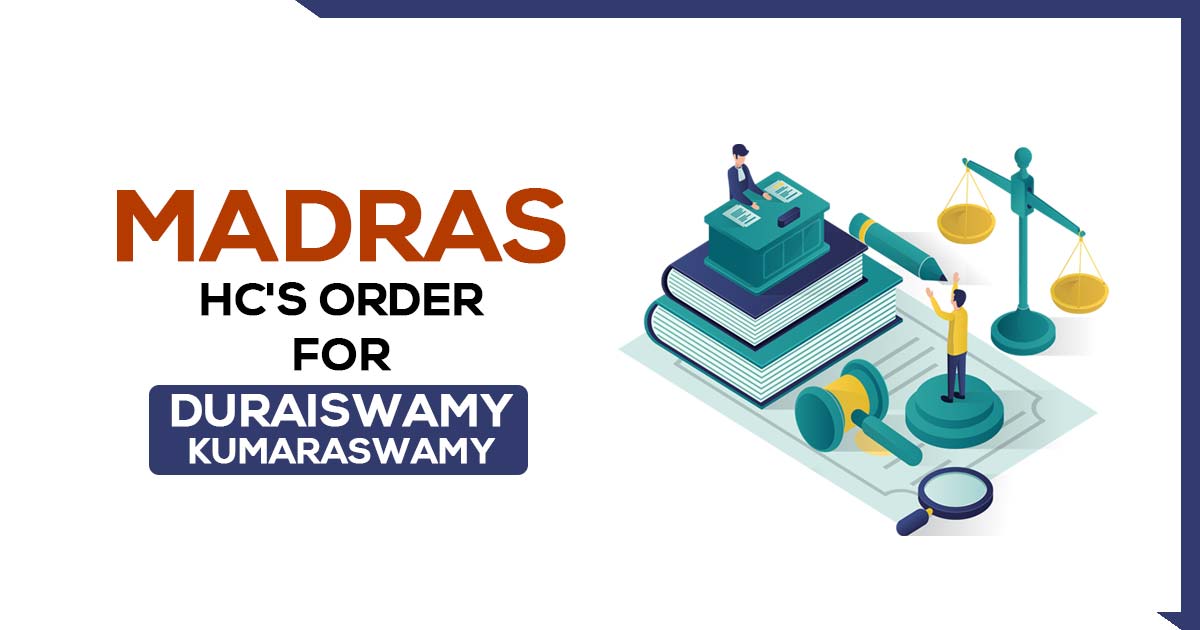
The Madras High Court has approved the Foreign Tax Credit (FTC) claim based on the submission of Form-67 after the Income Tax Return (ITR) filing but before receiving an intimation, deeming it as compliant.
Justice Krishnan Ramasamy’s bench noted that initially, the returns were filed sans the FTC, but it was submitted before the final assessment order. Rule 128’s requirement for FTC submission is seen as more of a guideline to enforce the Act’s provisions, maintaining its non-binding nature.
The petitioner, employed as a CEO in Kenya from 2016 to 2018, was an Indian resident in the financial year 2018-2019, reporting both Kenyan and Indian incomes in their Indian Income Tax return.
They sought Foreign Tax Credit (FTC) benefits under Section 90/91 of the Income Tax Act, 1961, in conjunction with Article 24 of the India-Kenya Double Taxation Avoidance Agreement. The petitioner filed taxes for their Kenyan income separately. The claimant asserted their right to a Foreign Tax Credit (FTC).
The applicant clarified that while filing the Indian ITR for the assessment year 2019-2020, they accidentally omitted to upload Form-67, mandated by Rule 128 of the Income Tax Rules, 1962, for FTC claims.
On February 2, 2021, the petitioner submitted Form 67 and the TDC certificate. Subsequently, on March 26, 2021, the Centralized Processing Centre (CPC) in Bangalore processed the income tax return under Section 143(1) of the Act, sending the petitioner an intimation via email.
However, the FTC wasn’t implemented. Hence, on March 27, 2021, the petitioner asked the CPC to activate the FTC. Additionally, on May 3, 2021, via e-proceedings, they requested the CPC in Bangalore to correct the earlier intimation by honouring the FTC.
Unfortunately, despite these efforts, the petitioner’s appeal wasn’t accepted, and they received another intimation on May 18, 2021, under Section 143(1) of the Act, citing the mentioned demand. Subsequently, on May 26, 2021, the petitioner again urged the CPC to apply for the FTC through a letter.
By June 15, 2021, the petitioner got a rectification order via email on July 21, 2021, still reflecting a demand of Rs. 29,69,260.
The petitioner argued that Rule 128’s process is more of a guideline than a strict mandate. Despite filing the FTC well before the assessment proceedings were concluded, the intimation under Section 143(1) arrived on March 26, 2021, while the petitioner uploaded the FTC on February 2, 2012.
The Department argued that Rule 128’s procedure is obligatory and cannot be seen as merely advisory. According to Section 139, Form-67 must be submitted by or before the deadline for filing the income tax return.
The court ruled that although the intimation under Section 143(1) was issued on March 26, 2021, the FTC had been filed on February 2, 2021. Therefore, the respondent should have rightfully acknowledged the petitioner’s FTC. However, the department’s rejection of the FTC is improper and does not align with the law.
| Case Title | Duraiswamy Kumaraswamy Versus PCIT |
| Citation | W.P.No.5834 of 2022 and W.M.P.Nos.5925 and 5927 of 2022 |
| Date | 06.10.2023 |
| Counsel For Appellant | Vikram Vijayaraghavan |
| Counsel For Respondent | B.Ramasamy |
| Madras HC | Read Order |